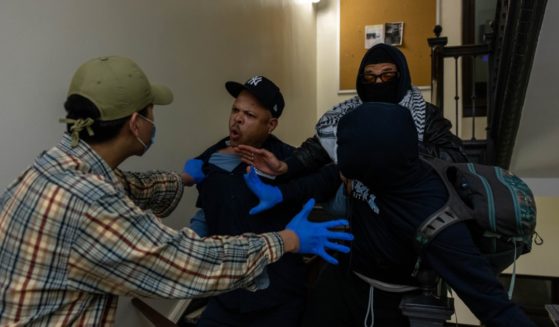Algeria's tidy revolutionaries: Cleanup after mass protests
ALGIERS, Algeria (AP) — Here’s one way Algeria’s protest movement is unlike any other: After massive pro-democracy demonstrations every week, the protesters themselves roam the streets picking up bottles, papers and other detritus left behind.
It’s a powerful symbol of the movement’s peaceful, hopeful spirit.
And it’s no small task after events like the latest protest on Friday, when the boulevards of Algiers thronged with so many people that it took hours to traverse a few blocks.
After the protests started Feb. 22 against President Abdelaziz Bouteflika and his entourage, organizers started sending messages on Facebook calling for demonstrators to stay peaceful and clean up after themselves.
Now the cleanup operation is a fundamental part of the Friday protest ritual, including individual volunteers pitching in around the city, along with more organized crews wearing orange vests.
“We’re volunteers. We organized ourselves after appeals on social networks. The shop owners give us free garbage bags. We have formed several groups,” said Abdellah Debaili, 36, a cleanup worker from the working class Algiers neighborhood of Hussein Dey Est.
He stands on a boulevard leading to the central post office, the most iconic gathering point of the movement, cajoling passersby to discard their orange peels, coffee cups or newspapers in the black plastic bag at his side. Each time they do, he smiles and says, “shukran,” or thank you.
“We’re happy,” he told The Associated Press, “because people congratulate us for doing this work.”
The peaceful nature of the protests is especially important to Algerians after the horrors they lived through in the 1990s, when an Islamic insurgency fought the energy-rich country’s security services for years and around 200,000 people were killed.
Today’s protests are a family affair. Young couples come out to march with babies in slings or strollers and small children on their fathers’ shoulders. Even in crowded streets, protesters make way for demonstrators in wheelchairs. On the edges, families sit on benches and eat picnic lunches — and clean up after themselves.
The tidy revolutionaries have drawn attention in France, where yellow vest protesters have been holding their own weekly protests for 21 weeks, and where protest violence has left stores and restaurants trashed or burned out or boarded up.
By contrast, in Algeria — once the jewel in France’s colonial crown — protesters and local businesses are on the same side, and police rarely intervene.
The Algerian movement succeeded in forcing Bouteflika from office this week, and is continuing to keep up pressure on a political elite seen as corrupt and repressive.
As Algeria’s Friday protests wind down, volunteers walk backwards along the march route, scooping up water bottles, protest signs or anything else left behind.
By Saturday morning, little sign is left of what happened the day before.
___
Angela Charlton contributed to this report from Paris.
The Western Journal has not reviewed this Associated Press story prior to publication. Therefore, it may contain editorial bias or may in some other way not meet our normal editorial standards. It is provided to our readers as a service from The Western Journal.
Truth and Accuracy
We are committed to truth and accuracy in all of our journalism. Read our editorial standards.












